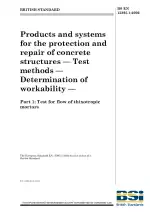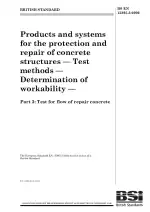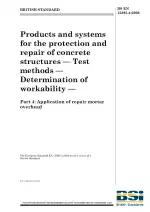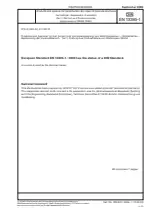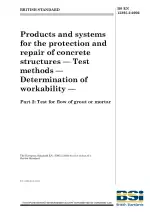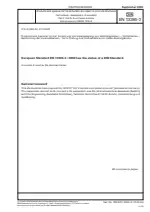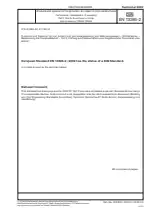BS EN 13395-1:2002 PDF Download
Standard EN SampleProducts and Systems for the Protection and Repair of Concrete Structures - Test Methods - Determination of Workability - Test for Flow of Thixotropic Mortars
Also Known As:
BS EN 13395-1:2002 standard provides a method for evaluating the workability of trowel-grade hydraulic cement mortars, polymer modified hydraulic cement mortars, and polymer bound mortars used for the protection and repair of concrete structures. The standard defines workability as the consistence of these mortars, which is important for ensuring their proper application and performance.
The test method described in this standard involves determining the flow of thixotropic mortars. Thixotropy refers to a property of certain materials that exhibit decreased viscosity under mechanical stress, allowing them to flow more easily when agitated. By measuring the flow of thixotropic mortars, their workability can be assessed.
The standard is applicable to trowel-grade hydraulic cement mortars (CC), which are commonly used for smoothing and leveling concrete surfaces. It also covers polymer modified hydraulic cement mortars (PCC), which incorporate additives to enhance their performance, as well as polymer bound mortars (PC) that utilize polymers as binding agents. These types of mortars are frequently employed in the protection and repair of concrete structures, as outlined in the standard EN 1504-1.
| Descriptors | Thixotropic materials, Concrete structures, Repair, Consistency (mechanical property), Structural systems, Mortars, Concretes, Workability, Mechanical testing, Construction systems parts |
| ICS Codes | 91.080.40 - Concrete structures 91.100.10 - Cement. Gypsum. Lime. Mortar |
| Language(s) | English |
| ISBN | 0 580 40089 1 |
| File Size | 307.2 KB |

